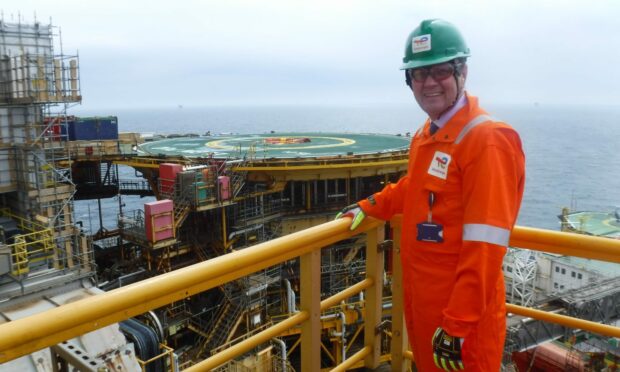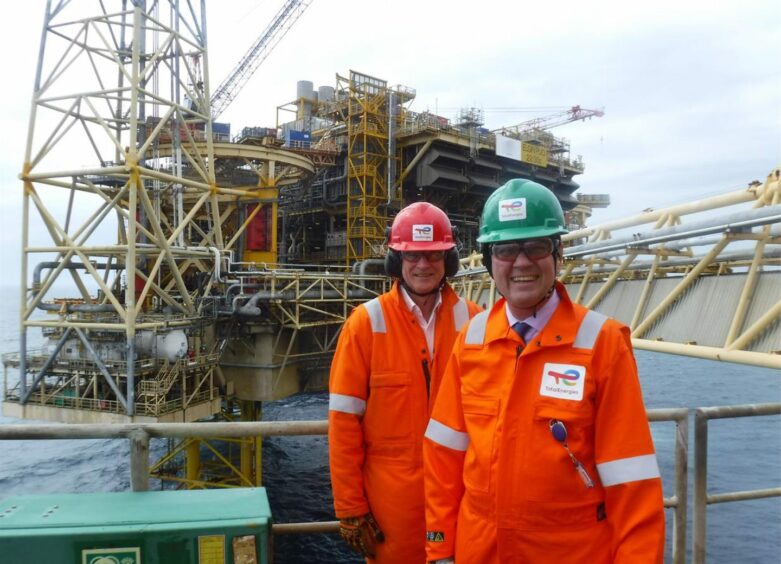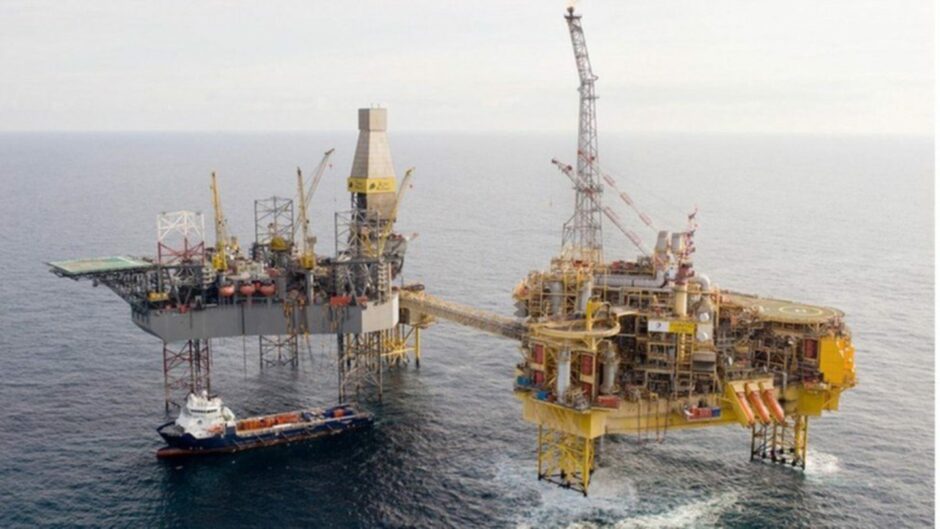Energy minister Greg Hands has insisted the new windfall tax on the North Sea energy industry will not deter investment.
And the sector has a lot to be positive about in a wave of renewable projects gathering pace, he said.
Mr Hands was speaking just after he returned to Aberdeen following his visit to an offshore platform.
He was a guest of French energy giant TotalEnergies on one of its key production facilities on the Elgin and Franklin gas and condensate fields in the Central Graben Area of the North Sea, about 150 miles east of Aberdeen.
Fourth time in Aberdeen as energy minister
And on his fourth visit to Aberdeen in his nine months as energy minister, he also met representatives of the Granite City-based North Sea Transition Authority – the offshore industry’s watchdog – and trade body Offshore Energies UK (OEUK).
The flying visit to the north-east – kept short due to concerns about potential travel disruption amid aviation sector woes – came just a few weeks after Chancellor Rishi Sunak caved in to widespread demands for windfall tax on the UK energy industry.
The sector had repeatedly warned the move would hit future investment and threaten jobs.
But Mr Sunak was under growing pressure to mitigate fast-rising household energy bills, taking aim at North Sea firms’ hefty profits after a sharp rise in crude oil prices.
We want to see people investing in oil and gas.”
Greg Hands, energy minister.
Mr Hands said: “I have every confidence investment will not be affected by the announcement by the chancellor on May 26.
“There were a lot of allowances for investment within that.
“Our message is we want to see people investing in oil and gas.”
Mr Hands said he was a strong advocate of making sure conditions are ripe for companies to spend in the UK, having previously served as Britain’s investment minister.
North Sea oil and gas has a “fantastic track record”, while the north-east and the rest of the UK can also reap the rewards of the world’s largest offshore wind sector, he said.
The minister said assets like the Elgin-Franklin fields, together producing about 5% of the UK’s gas requirement, with TotalEnergies accounting for 12%, were vital for Britain’s energy security.
Earlier this year the UK Government unveiled its Energy Security Strategy, aimed at setting out how Britain can accelerate home-grown power and increase energy independence.
The main goal is to increase low carbon electricity production to 95% by 2030.
Offshore wind is a focus, with the target of reaching 50 gigawatts of energy production by 2030.
Mr Hands said he was in the north-east to “thank” TotalEnergies and the widerNorth Sea energy industry for “putting money where their mouth is” in terms of ongoing investment, as well as for its “increasing move into renewables”.
The minister had no fresh news to share about carbon capture and storage (CCS) funding.
A Scottish Cluster – comprised of major industrial emitters and the developers behind the flagship Acorn CCS project, planned for Peterhead – was passed over for “Track 1” government funding last year.
The Scottish scheme was instead selected as a “reserve cluster”.
Mr Hands rounded off his visit by meeting OEUK chief executive Deirdre Michie.
An OEUK spokeswoman said: “We continue to raise concerns over the windfall tax and restated our commitment to working with government to now mitigate the negative impacts this will have on production, jobs and our ability to attract much-needed investment into the basin.”



Conversation